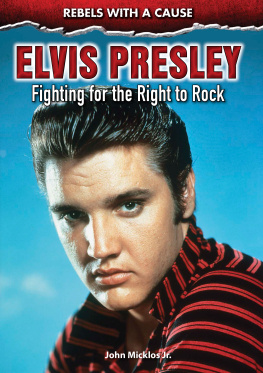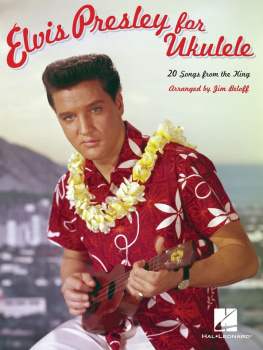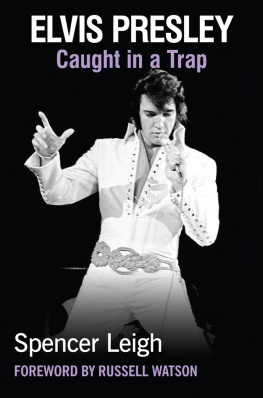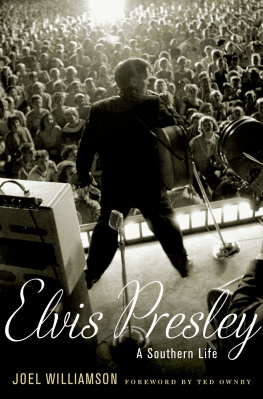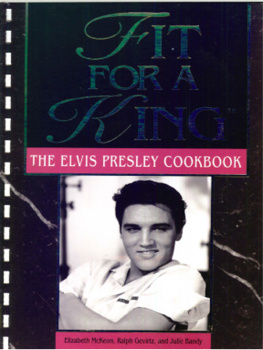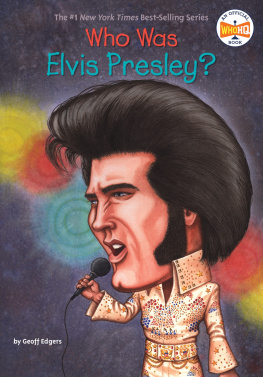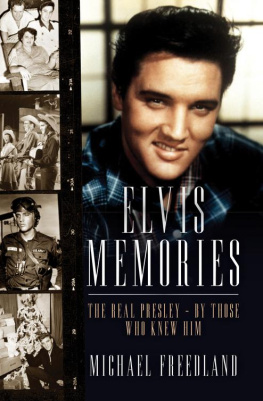First published 1997 by Westview Press
Published 2018 by Routledge
711 Third Avenue, New York, NY 10017, USA
2 Park Square, Milton Park, Abingdon, Oxon OX14 4RN
Routledge is an imprint of the Taylor & Francis Group, an informa business
Copyright 1997 Taylor & Francis
All rights reserved. No part of this book may be reprinted or reproduced or utilised in any form or by any electronic, mechanical, or other means, now known or hereafter invented, including photocopying and recording, or in any information storage or retrieval system, without permission in writing from the publishers.
Notice:
Product or corporate names may be trademarks or registered trademarks, and are used only for identification and explanation without intent to infringe.
A CIP catalog record for this book is available from the Library of Congress.
ISBN 13: 978-0-8133-2987-1 (pbk)
ISBN 13: 978-0-8133-2986-4 (hbk)
Cover illustration, Happy 200th Anniversary Tennessee, Howard Finster, 1995. Reproduced by permission of Gallery 721, Ft. Lauderdale, Florida, in conjunction with the Tennessee State Museum, Nashville.
The editor takes pleasure in thanking the many friends, colleagues, and supporters who contributed generously of their time, talent, and good will to the Elvis conference and this book. I want in particular to express my gratitude to Bill Ferris, director of the Center for the Study of Southern Culture at the University of Mississippi, for his unstinting and courageous effort to "Tell about the South," the real South, all "white lies" notwithstanding; Colby Kullman, a loving and creative voice within the Ole Miss English Department, who instantly welcomed Elvis to the head of the class; and Larry Clemons, president of Gallery 721, Ft. Lauderdale, Florida, who shares the artistic and pedagogical vision of this book in every way.
My thanks also go to Ger Rijff for generously contributing rare photographs from his world-class Elvis archives; Trent Booker for reading the introduction in an early version and making many valuable suggestions; Anita Bryan for her help with securing photographs from the good folks in Tupelo; Larry Arnett of Light of Day Publishing for inspirational brainstorming and editorial advice; Earl White and Queen Elizabeth Weeden for being Soul Parents Number One; Peter Paul of Diglcon Media Group for his networking skills and entrepreneurial genius; Patricia Chadwick Lamar, my sister, for floating the letters E-L V-I-S in red carnations in her swimming pool; and Milly Moorhead of Southside Gallery for opening her enlightened space on the Oxford Square to El Vez, Black Elvis, and Man of Visions.
This book and the labor that went into it I dedicate to my parents and their generation of old-style southerners, especially to my father, Dr. Vernon D. Chadwick, Sr., who saw Elvis perform at the 1956 Mississippi-Alabama Fair and Dairy Show in Tupelo while inspecting the animals for the Mississippi Livestock Sanitary Board.
Vernon Chadwick
Ole Massa's Dead, Long Live the King of Rock 'n' Roll
VERNON CHADWICK
This book makes available the proceedings of the first annual International Conference on Elvis Presleyone of the most publicized and controversial academic conferences on record.
On the Road to the Elvis Conference
In 1990, when I returned to Mississippi, my native state, after an education that took me to Dartmouth, Oxford, the University of Freiburg (Germany), and Yale, where I received my Ph.D. in comparative literature, I was ready to put my learning to work. I wanted to break new ground for higher education, to open new fields and strike out on new paths. I was filled with many intuitions about what I felt needed to be done. I wanted to test, not merely apply, my training in methods of interpretation with forbidding names like hermeneutics, phenomenology, and ontology, methods well advanced in Europe but fledgling, or nonexistent, in the United States, especially in the humanities.
Elvis, both the historical figure and the discourse surrounding him, attracted me instantly. Apart from the intrinsic merits I saw in the topic of Elvis for serious discussion and analysis, here was a power, through sheer name recognition, that could attract interest to some of the neglected questions of higher education. In the first instance, Elvis names a class (poor, white, blue-collar), an experience (Depression-era), and an outlook (evangelical) to which little attention has been paid by mainstream scholars.
I then looked north to Memphis. Graceland attracts 700,000 annual visitors who come from all parts of the United States and every country in the world. Only the White House boasts more visitors among private residences. Surely this popularity could be tapped not just for tourism and commerce but also for education.
In the spring of 1992, I taught one of the first university courses on Elvis in the country: "Blue Hawaii: The Polynesian Novels and Hawaiian Movies of Melville and Elvis." This course was designed to open the American canon to Elvis and vice versa. Read from the perspective of Elvis's Hawaiian oeuvre ( Blue Hawaii; Girls! Girls! Girls!; Paradise, Hawaiian Style ), Melville's Polynesian novels were Hollywood-style screenplays from a precinematic era. Viewed from the perspective of Melville's Polynesian oeuvre ( Typee , Omoo, Mardi), Elvis in his Hawaiian roles was a Melville-style hero who transgressed boundaries of race, culture, and society.
Soon after this and other successful experiments with Elvis in the classroom, I began planning an international Elvis conference. The conference would cross the same boundaries Elvis crossed in his music and movie roles. It would welcome scholars, artists, musicians, and ordinary people to join a new coalition of learning. Like Elvis's own national television debut on the Dorsey brothers' show in 1956, the Elvis conference would be no academic business as usual. No, it would be a wake-up call to America and the American university "Get outta that kitchen and rattle those pots and pans." Elvis was about to come into his own as a rebellious, radicalizing force of democracy, equal opportunity, and free expression.
The Elvis Text: Desegregating Higher Education
The Elvis conference and this groundbreaking book mark the beginning of the first comprehensive attempt to study the locality and life world of "Elvis" and its diverse cultures. Assembled here is creative new thinking by interdisciplinary and independent scholars in music, history, sociology, cultural studies, and the "school of life," who employ "Elvis" as a gateway into issues of race, class, sex, religion, and everyday existence. This new scholarship surpasses what was once known as the study of "popular culture"
Just as Elvis Presley rebelled against the taboos of a segregated society in the 1950s, so too does the new Elvis scholarship marshaled in this bookwhich embodies the spirit of Elvis dissent significantly from the academic status quo in the 1990s. The reader will encounter no disembodied, professorial talking heads in these essays but rather real people, with personal histories and human voices, conversing, conferring among their peers. In keeping with his spirit of inclusion and rainbow coalition of musical styles, a conference devoted to Elvis Presley would have to cross the same lines of race, class, gender, and ethnicity in order to remain true to its namesake. Such is the scholarship of the Elvis conference and this book, such is their art of polyphony.


